From Borrower to
Benefactor
A Farmer’s Journey From Dependency to Self Sufficiency
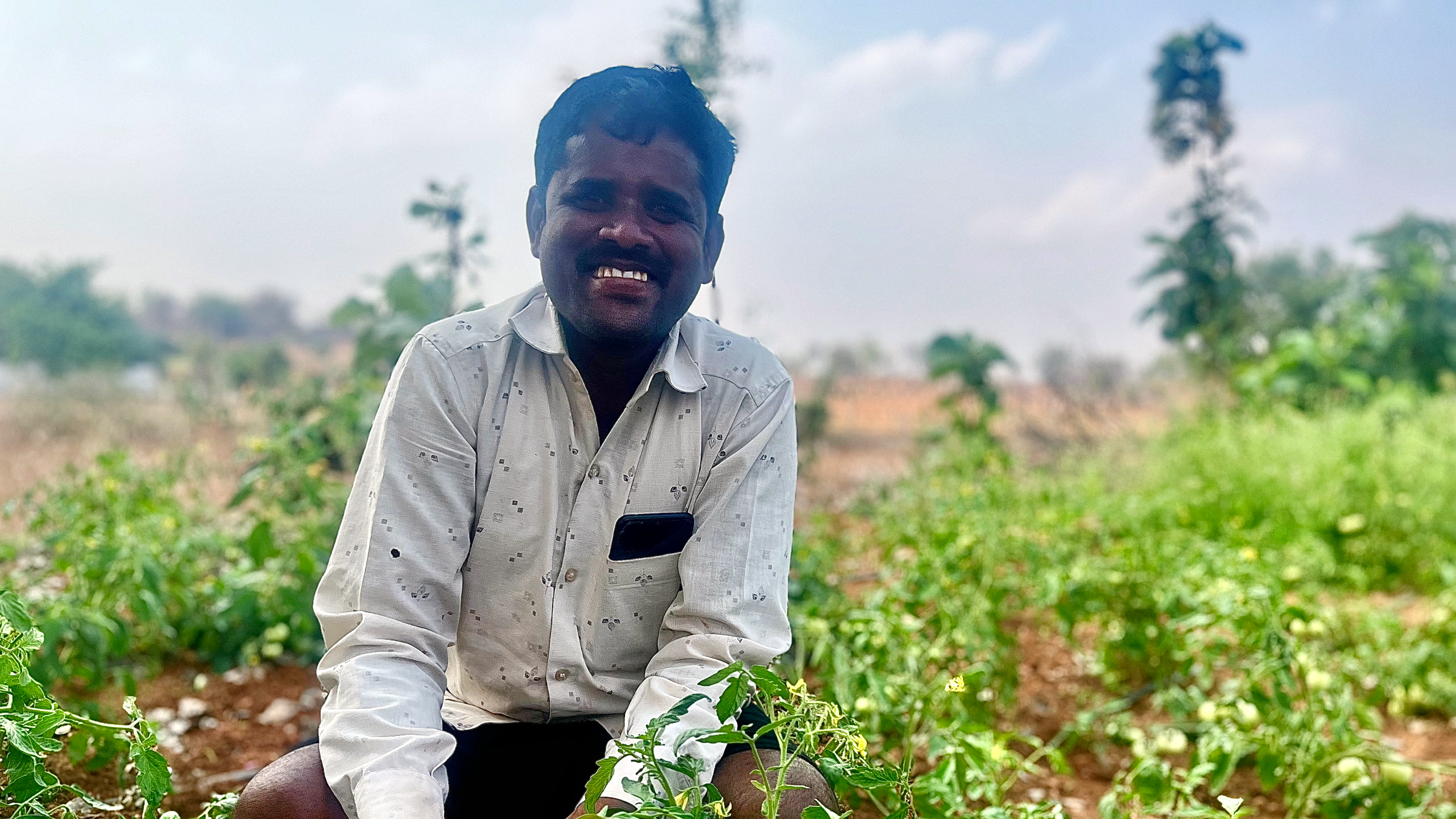
In the small village of Chandkhanguda in Manchal Mandal, Rangareddy, Telangana, Godugu Krishna, aged 33, resides with his father and younger brother. Their livelihood hinges on farming, cultivating a 2 to 2.5-acre plot where they grow tomatoes, fodder for animals, and some paddy.
Ten years ago, reliance on rainfall dictated Godugu family’s farming practices, and he recalls taking loans at exorbitant rates from local moneylenders to pursue agriculture.
“Wells were the primary means of irrigation then, and since my family didn’t have one, we would take land on lease, and do farming that way. Under the lease agreement, half of the produce went to the landowner, and half to us, but the income generated was not enough for us to eat, let alone cultivate the next crop cycle. Each year, all we got was 2 quintals of rice for us and a couple of bags of fodder for our buffalo. There was no saving or gains,” he recalls.
With a fixed cycle of borrowing to cover losses and repayments, there was also little room for financial stability or progress. The unpredictable weather exacerbated their challenges, often resulting in crop losses.
"Once, I remember, we faced double losses due to hail storms. That year, there was nothing to eat at home," he recounts.

To cope with limited water availability - a reality in these parts - many families resorted to digging borewells, but within a few years, those too dried up. “There are areas here where even if you dig 500 feet deep, there is no water. Most households grow paddy here, but paddy requires a lot of water. Flood irrigation, the only method we knew back then, led to water wastage and poor crop management, but no one knew any better. After a season of working on the field, when the moneylender deducted his share, all my family received was Rs 500-1000 every season,” he adds.
Fed up of living in a cycle of debt, Godugu decided to take one last loan from his relatives in 2016, and started farming on the 2 and a half acres his family owns. Initially, he focused on rainfed farming due to the region's scanty rainfall. "There was limited water availability beyond one season, so we cultivated crops like cotton, black gram, horse gram, bajra, and jowar," he explains. "I managed to make a profit of 15,000-20,000 rupees within a couple of years. With the money, I repaid all loans and started cultivating paddy since the government offers a minimum support price for it,” he adds.
Paddy cultivation, however, posed a new set of challenges. It demanded more water and additional chemical fertilisers, which added to the financial strain. It was during this time, when he was contemplating how to make agriculture more profitable while conserving water, that Godugu Krishna met WOTR’s team.
With support from HSBC’s ‘Promoting Entrepreneurship, Employment opportunities and increased Incomes in Telangana’ project, in 2021 he initiated watershed activities on his farm.
This involved levelling the land and implementing trench-cum-bunding work. Additionally, a point recharge system was installed in his field to replenish groundwater levels and enhance water retention capacity, ensuring sustainable water management on his farm.
Subsequently, he broadened his crop variety and ventured into paddy and vegetable cultivation using the System of Crop Intensification (SCI) and the System of Rice Intensification (SRI) - two innovative agricultural practices aimed at optimising crop yields while minimising resource usage.
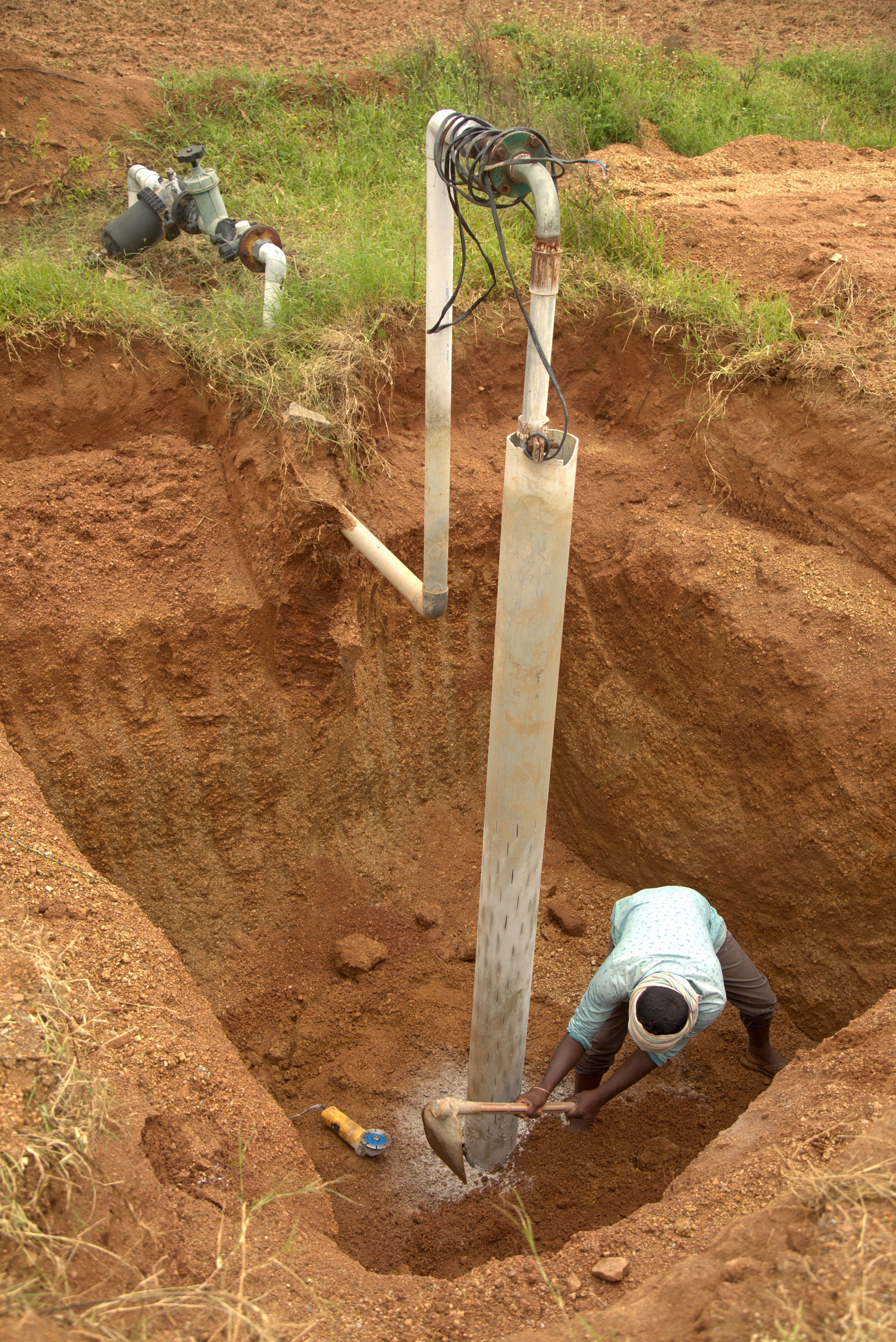
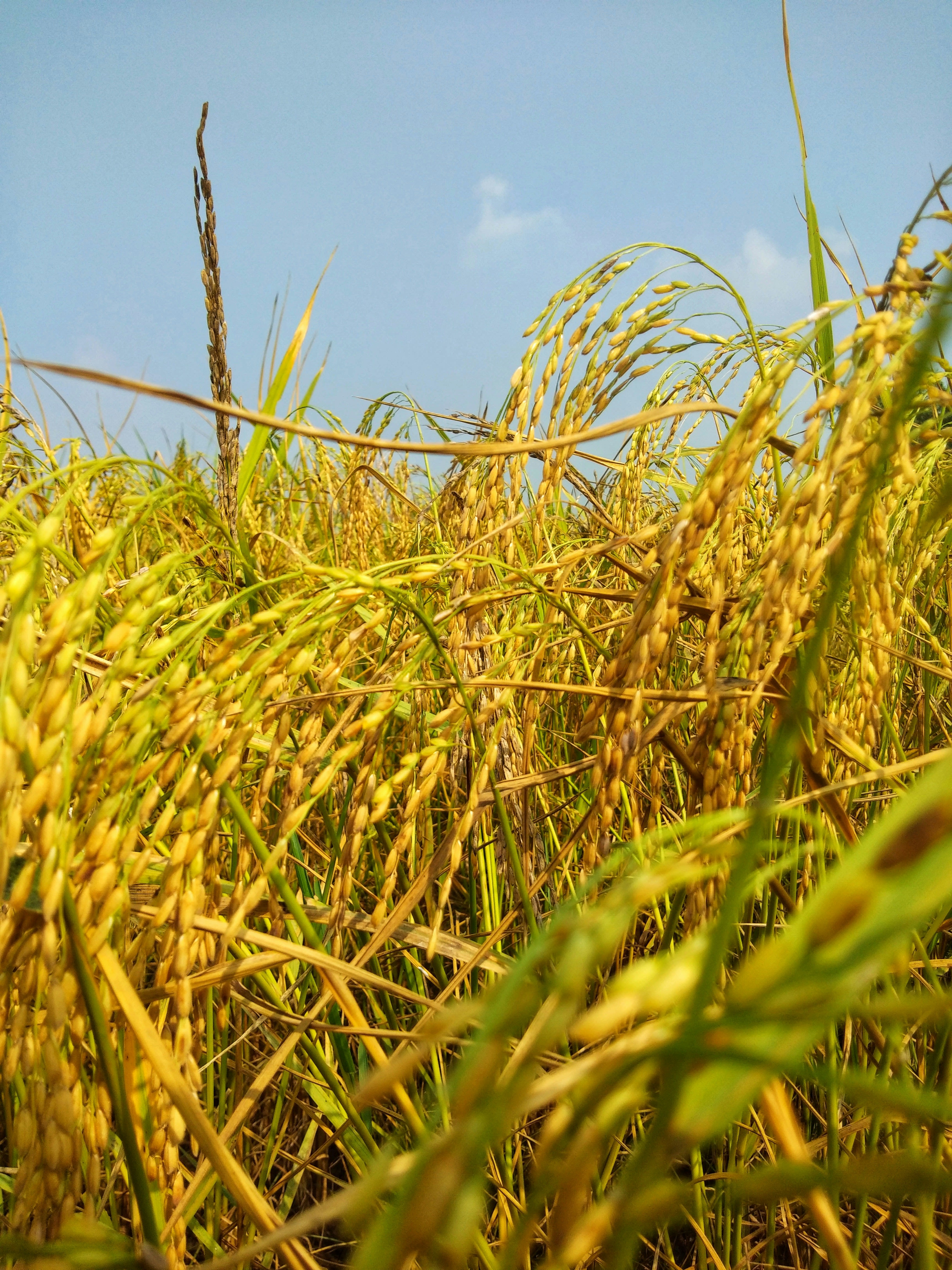
Photo by Avinash Kumar on Unsplash
Photo by Avinash Kumar on Unsplash
Guided by WOTR, he also adopted organic farming methods and embraced drip irrigation, a precise and efficient watering technique that minimises water usage while maximising crop productivity on his farm.
These changes yielded many advantages, including water conservation, labour reduction, and improved crop productivity. With the new innovations, Krishna's farm experienced a surge in prosperity, with tomatoes, chilli peppers, brinjal, bottle gourd, and cucumber thriving under the new system.
“There was a noticeable increase in both water availability as well as crop production. Earlier I would get 20 boxes of produce, now I get 30. I used to spend a quarter of my income on chemical fertilisers, that has reduced drastically. There is change in both the quantity and quality of the crop. There’s a lot of difference,” he says.
The impact of these changes is also evident from Krishna's financial standing. Where once he had struggled to break even, he now sees consistent profits. “In 2021, I made a profit of Rs. 70,000. In 2022, it was Rs. 18,000. In 2023, I earned Rs. 1.5 lakhs in profit,” he says.
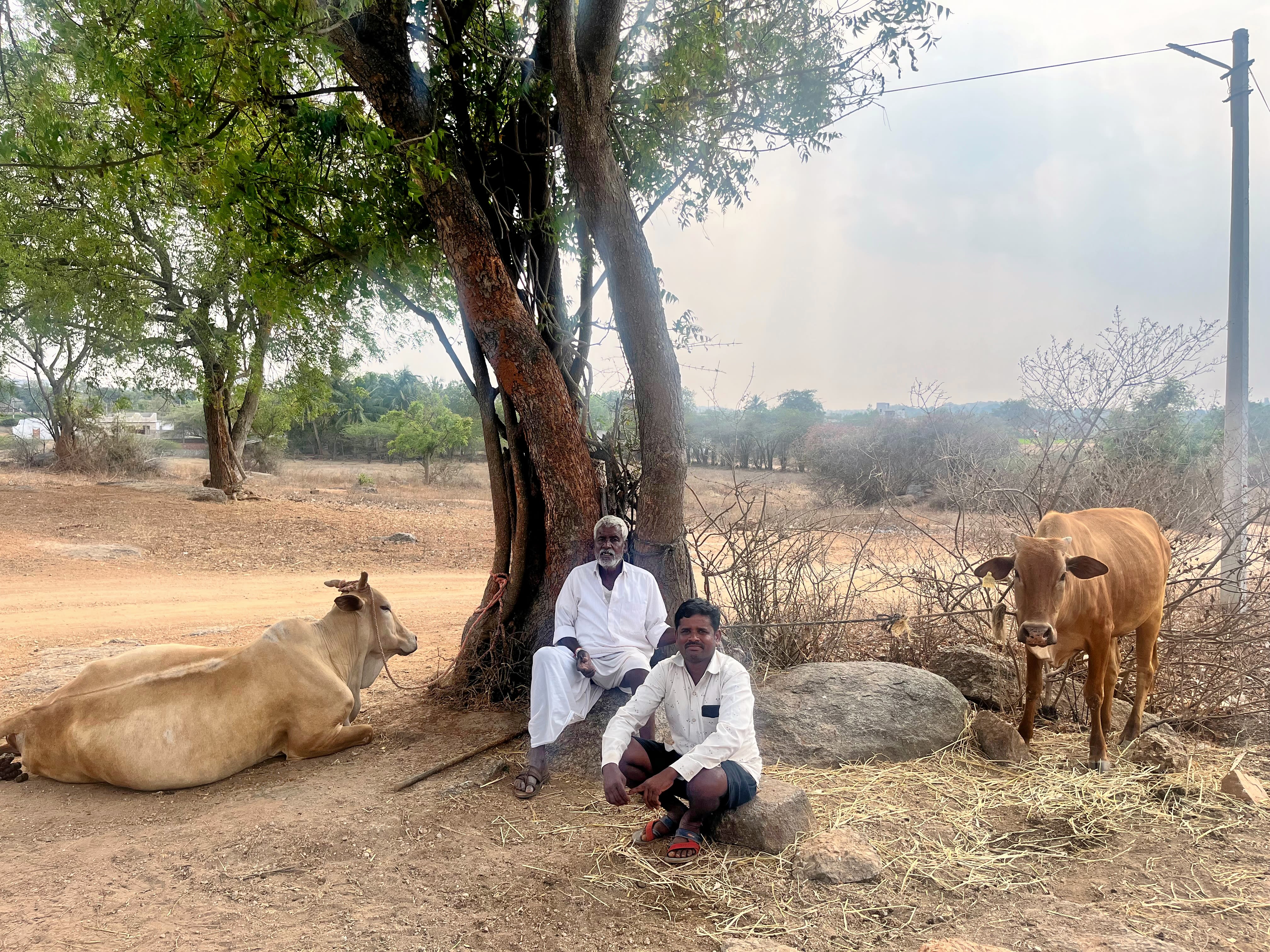
Earlier, he found himself in a position of continually seeking financial assistance, gesturing with his hands turned outwards. But now, people approach him for support. "I just loaned 30,000 to a relative, and another 20,000 to a friend," he says.
The newfound stability has also allowed him to expand beyond farming, and venture into dairy production. “With the profits, I have been able to purchase 2 new cows,” he says.
His new house and furniture therein, including a brand new 55-inch television reflect not financial security but a newfound confidence in his ability to thrive independently. "We are also happy now. If one crop fails, another succeeds. But the losses and gains are both ours. Ab ye mera khud ka kaam hai (this is my own work now),” he says with pride.
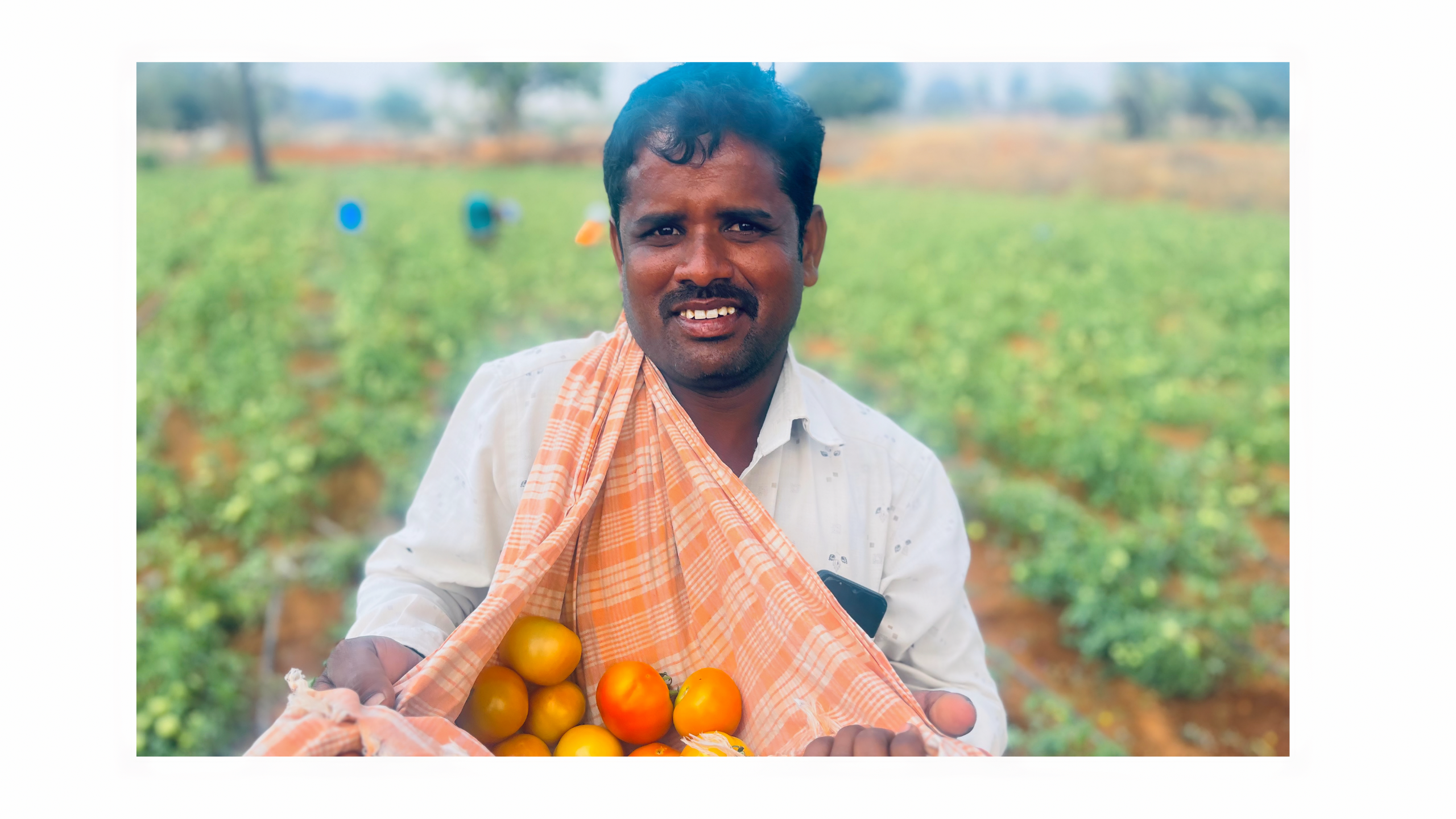
Rising Above: Stories of Empowerment and Enterprise in Rural Telangana
This compelling collection of stories celebrates the remarkable success of the "Promoting Entrepreneurship, Employment Opportunities, and Increased Incomes with Water Security Activities in Rural Telangana" initiative, a transformative partnership between HSBC and WOTR.
Focused on 10 villages in two blocks of the Rangareddy district, this project tackled the challenges faced by small and micro-enterprises in this traditionally agricultural region: low productivity, high costs, and limited market access often trapped these businesses in a cycle of low wages and unmet needs.
The initiative empowered rural communities, especially women, by prioritizing water security, sustainable agriculture, and a nurturing entrepreneurial environment. This multi-pronged approach equipped individuals to manage their micro-enterprises effectively and sustainably, paving the way for greater financial independence and well-being.
The stories within "Rising Above" capture the inspiring journeys of those who have transformed their lives through this initiative. Their stories serve as a testament to the power of sustainable development and entrepreneurship in rural Telangana, offering a glimpse into a future where communities thrive through self-reliance and innovation.
